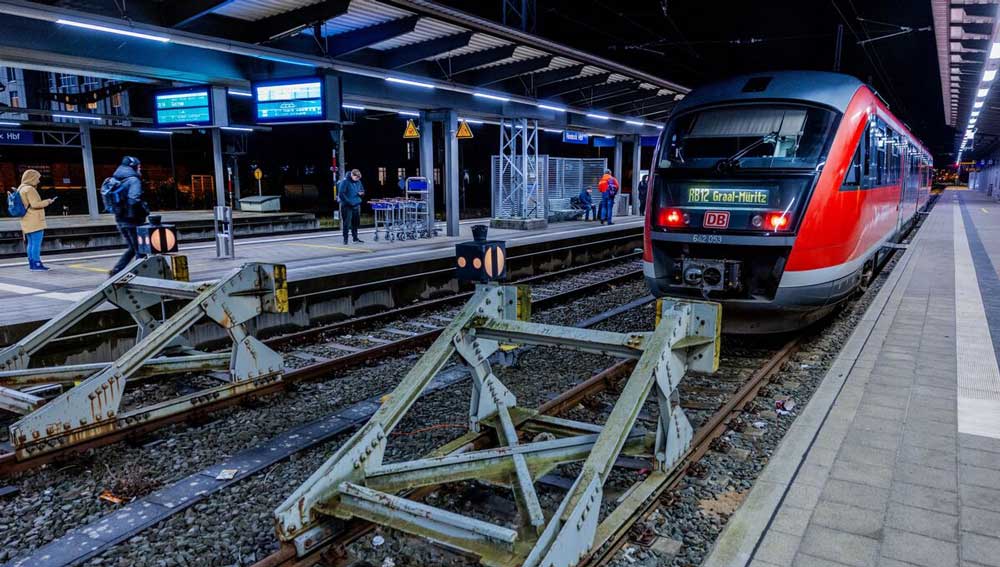Germany, known for its efficient rail network, is currently grappling with a major setback as train drivers from the GDL Union embark on a record-breaking six-day strike. The strike, driven by an ongoing wage dispute with Deutsche Bahn, the country’s main railway operator, is expected to have significant consequences for the German economy. As supply chains face disruption and manufacturing struggles with existing challenges, the strike poses a pressing concern for businesses and the overall economic performance of the nation.
Impact on Manufacturing and Supply Chains
The strike comes at a challenging time for Germany’s vast manufacturing sector. Already burdened by high energy costs, strained supply chains, elevated interest rates, and weak domestic and foreign demand, the industry is now faced with the longest industrial action in Deutsche Bahn’s 30-year history. Industrial production, which primarily consists of manufacturing, contracted by 2% last year, contributing to a decline of 0.3% in the country’s gross domestic product in 2023, potentially the weakest performance among major European nations.
The disruption caused by the strike is expected to create significant challenges for various industries, particularly chemicals, pharmaceuticals, and automotive. The German Chemicals Industry Association emphasizes the importance of rail transportation for the logistics of these sectors, which rely on the efficient supply of raw materials and the transportation of intermediate and finished products. The German Association of the Automotive Industry warns that the impact will extend beyond Germany’s borders, as a considerable number of vehicles manufactured in the country are transported by rail.
Logistical Challenges and Business Concerns
Businesses have been scrambling to find workarounds since the announcement of the strike, but it is clear that these measures will not fully offset the magnitude of the disturbance. The timing of the strike exacerbates the existing bottlenecks caused by disruptions to global trade routes. As a result, the chemical and pharmaceutical sector faces a significant logistical challenge, with raw material supplies and product shipments being heavily affected.
The repercussions are not limited to Germany’s borders, as the disruption in the country’s rail network impacts international trade. The German automotive industry, in particular, emphasizes the difficulty of shifting from rail to road transport on short notice. The ongoing wage dispute and the resultant strike have damaged Germany’s reputation as a reliable business location. Industry bodies and Deutsche Bahn have called for a swift return to the negotiation table to find a resolution that benefits all parties involved.
Potential Economic Consequences
While the daily cost of the strike to the transport sector is estimated at approximately €30 million ($32.6 million), the economic impact could be far more significant if factories are forced to reduce production due to supply shortages. Commerzbank chief economist Joerg Kraemer highlights that the strike is not only testing the patience of the public but also tarnishing Germany’s reputation as a business-friendly environment.











